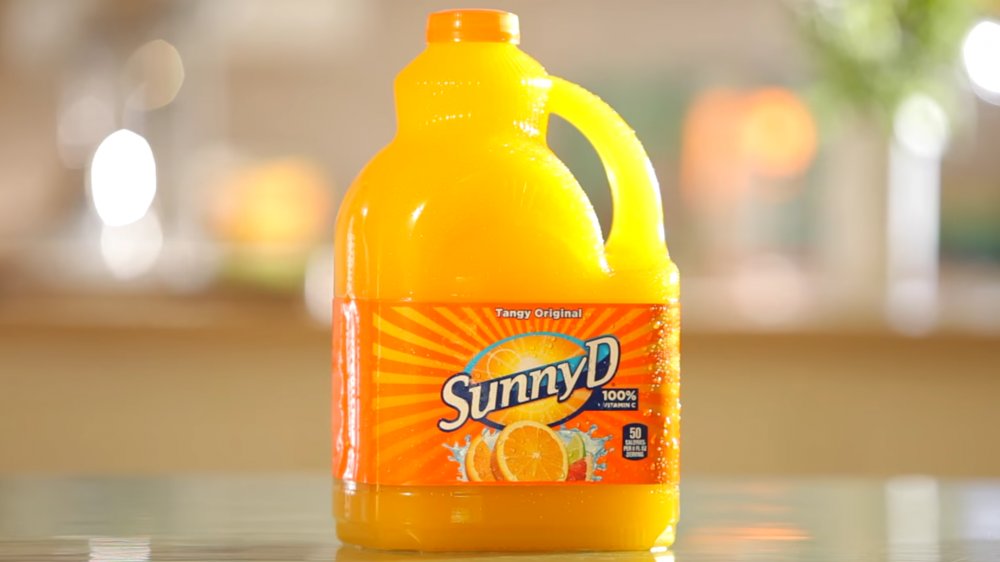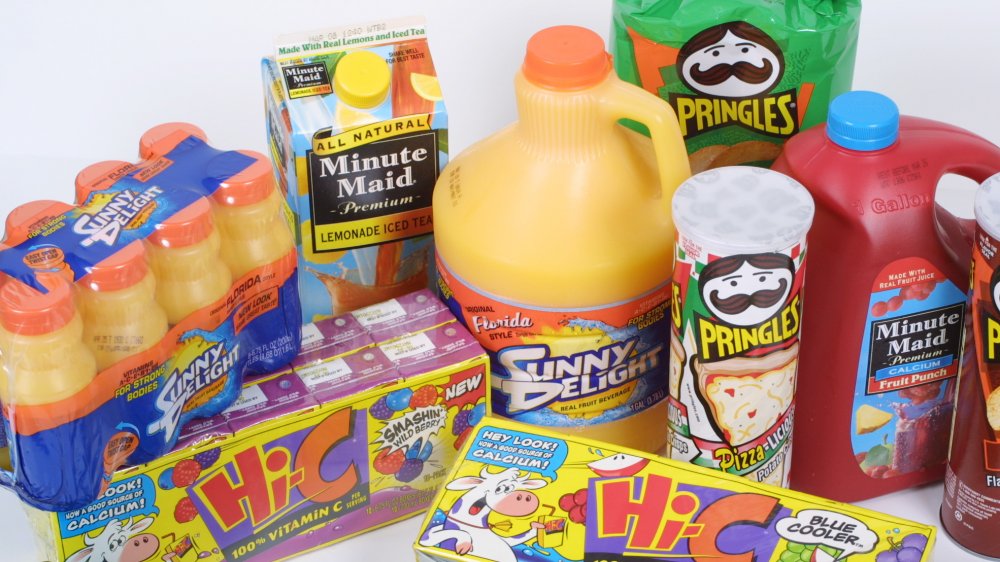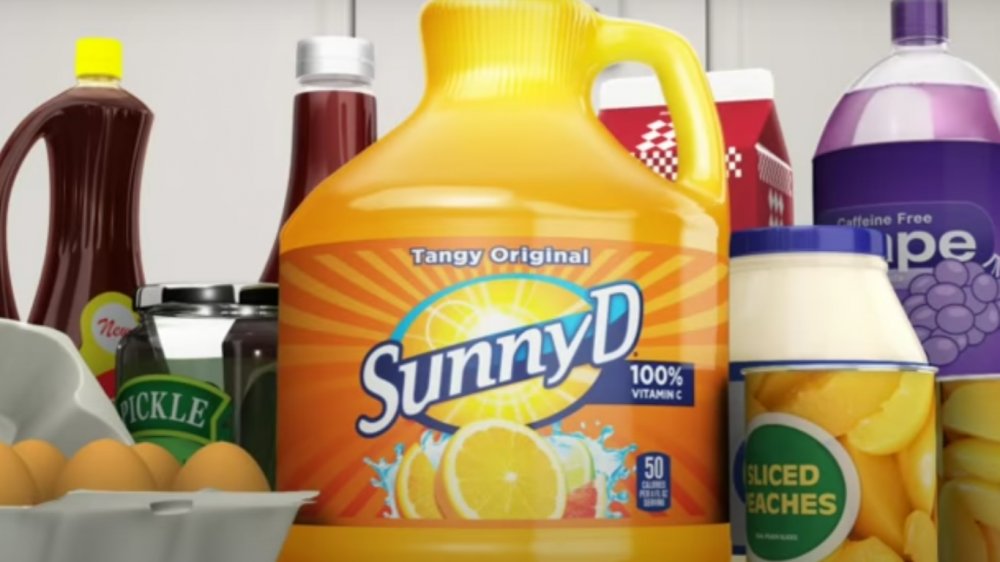The Untold Truth Of SunnyD
When a drink has a name as cheery and wholesome-sounding as SunnyD — previously marketed as Sunny Delight — it might give you the impression that the makers figured out how the Sesame Street theme would taste if you could drink it. Like a sunny day sweeping the clouds away, SunnyD would brighten your day. Now, if only someone could tell you how to get to SunnyD Street.
The official SunnyD website tells you how the inventors arrived at their bright idea: "In the Summer of '63, a couple of Florida dads stood together in an orange grove and agreed, 'good, but we can do better.' With a firm handshake, they vowed to create the tastiest, most boldly unique orange drink on the planet." At the very least, they made a uniquely bold claim.
The Sunny Delight UK website adds that those dads were Howard Dick and Phil Grinnell. It further explains that the fathers of SunnyD wanted to be good fathers to their children by inventing "a drink with all the goodness and taste of Florida sunshine that the kids will love." Unfortunately, as Nazareth reminds us, love hurts, and it especially hurt SunnyD sales in the UK.
The sun sets on SunnyD in the UK
If you spend enough time in the United Kingdom, the famous saying "the sun never sets on the British Empire" starts to seem like a joke about the fact that the sun never seems to rise in Britain in the first place. But in 1998, Brits didn't need a sunny day to sweep their perpetually gray skies away because that year marked the dawn of SunnyD in the country. It quickly became their cup of tea, with BBC News reporting that SunnyD was only surpassed by Coke and Pepsi in sales. "It was a phenomenon," according to Jane Bainbridge of Marketing magazine, who described the sudden success of SunnyD as unprecedented.
Loaded with vitamin C, the drink reportedly had "mum appeal." One such mum explained that her kids "thought it was orange juice and... so I thought well it's like orange juice, it's healthy." However, a consumer group called the Food Commission thought otherwise. They declared SunnyD "roughly equivalent to a Coca Cola-type product." But the biggest signal to proceed with caution came when a SunnyD-chugging child turned yellow.
SunnyD turned one little girl's skin yellow
Drinking too much Florida sunshine can give you a SunnyD tan, as one 4-year-old girl from Wales learned in 1999, when the drink turned her skin yellow (via BBC News). Making matters worse, the incident coincided with the release of a SunnyD commercial featuring snowmen turning yellow as they consumed the sun-colored beverage. Granted, that ad might already sound disastrous to anyone familiar with the expression "don't drink the yellow snow." But now it looked like truth in advertising in a nightmarish "Violet Beauregarde becoming a human blueberry at Willy Wonka's chocolate factory" sort of way.
In fairness to SunnyD, the girl had been guzzling an insane 1.5 liters of the stuff every day, resulting in a buildup of beta carotene that turned her yellow. Abundant consumption of anything high in beta carotene such as carrots, also known as snowmen's noses, can have the same effect. As Vice describes, the condition is called carotenosis or carotenemia. A Senior Lecturer in Nutrition at the University of Newcastle, Dr Georg Lietz, explained that the nutrient accumulation occurs in the fatty layer of the skin. Moreover, some people's body's may not break down beta carotene as efficiently as others.
The carotenosis posed no safety risk to the girl. However, more generally, it can cause upset stomachs and flatulence. Despite the sunny outlook for the child's health, this incident cast a dark cloud, and SunnyD sales began to melt away like a snowman in the summer sun.
SunnyD's sugar eclipses its vitamin C
Drinking enough SunnyD to look like jaundice's long lost twin might actually be more alarming than it looks, which is really saying something. It suggests the drinker is guzzling loads of sugar. Take SunnyD Tangy Original flavor, for example. The nutrition information displayed on the company website says an 8-ounce serving provides 100 percent of your daily dose of vitamin C and 12 grams (or 24 percent) of added sugar. 20 percent of your daily allotment of any nutrient is considered high, according to the Mayo Clinic.
The situation apparently used to be even worse. A 2014 Mother Jones article notes that a company press release proudly touted the fact that SunnyD's average calories per serving had been slashed from 92 to 48 since 2007. (Tangy Original currently clocks in at 60). That dubious boast was shared in response to questions about the sugar content of the newly released SunnyD X energy drink for teenagers. A 16-ounce serving added 50 grams of sugar to your diet. That product isn't currently featured on the SunnyD website, so it seems to have ridden off into the sunset.



